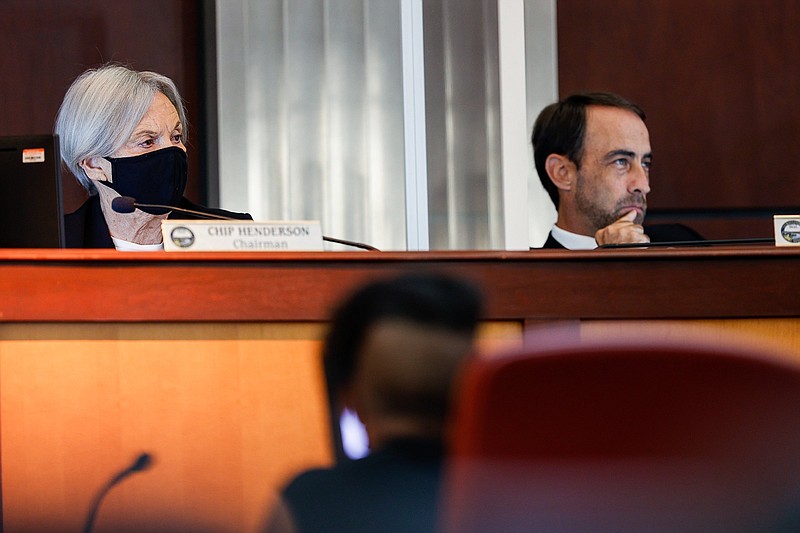A lawsuit alleging much of Chattanooga's political redistricting process took place in secret in violation of open government laws will continue after a judge Monday denied the city's request to dismiss the case.
Lawyers for the city argued in Hamilton County Chancery Court that a pair of public meetings, held after city staff met privately with City Council members to draw the first draft of the new district map, made up for any violations of Tennessee's open meetings law.
The lawsuit, filed by the publisher of the Chattanooga Times Free Press in December, asks the court to rule that process was too secretive and to oversee the city's process in the future to make sure the alleged violations don't happen again.
The newspaper is not asking for the map, which was redrawn using 2020 census data, to be done over.
(READ MORE: Chattanooga's redistricting process not public enough, Times Free Press lawsuit alleges)
Tennessee law says any public policy or decision-making by government bodies must be done in meetings open to the public, with a few narrow exceptions. Using informal meetings or other means of communication, such as email or text, to get around open meetings requirements also violates the open meetings law.
"Chattanooga Publishing doesn't have a dog in the fight regarding what District 8 and District 9 looks like," said Paul McAdoo, an attorney with the Reporters Committee for Freedom of the Press, representing the paper. "What they have an interest in is making sure that the City Council, next time that this comes up in a decade, that they do it in compliance with the Open Meetings Act."
Redistricting has been done roughly the same way in Chattanooga since 1989, attorney Sam Elliott argued Monday, when the city first adopted a district-based council government. The map is redone every 10 years, following census results.
"Each council member got information relative to their district," Elliott said. "We've cited in several cases to the county where members just getting information, without any sort of deliberation or discussion, is not illegal."
Council members may have given feedback to staff while the first draft of the map was being created, but the city says members didn't discuss the map with each other until it was presented in public.
The city presenting the new district map at two public meetings doesn't change the fact that council members had worked with staff to revise and tweak their own district boundaries before the map became publicly available, McAdoo argued.
Lawyers for Chattanooga say city staff "met with nine different people (council members) about nine different districts, and therefore nine different topics."
But changing one member's district also changes the bounds of neighboring districts, McAdoo argued.
"If one changes, it is apparent that two or three will change," the Rev. Ann Jones Pierre, president of the Chattanooga Hamilton County NAACP, said following the hearing Monday.
At the first public presentation of the new map last spring, members of the local NAACP branch, Hamilton County Voters Coalition and the Unity Group, along with other residents, called for the council to restart the redistricting process over concerns it was done without public input.
(READ MORE: Chattanooga asks court to dismiss lawsuit over city redistricting process)
Judge Pamela Fleenor denied the city's motion to dismiss the lawsuit, made in January, citing several parts of the newspaper's complaint alleging discussion and decisions were made at those meetings, making them more than informational.
The Times Free Press alleges that an ad hoc redistricting committee, made of four sitting council members, met to discuss and delegate tasks for the new map but did not give notice or keep minutes for those meetings.
"The plaintiff has met the very low threshold of stating a claim against the city for violation of the Open Meetings Act and against the individual council members," Fleenor said Monday.
The city also asked the court to remove the nine individual council members as defendants in the suit, arguing it was unnecessary to sue them as well as the city itself. Fleenor ruled Monday that the members would stay on.
Contact Ellen Gerst at egerst@timesfreepress.com or 423-757-6319.
